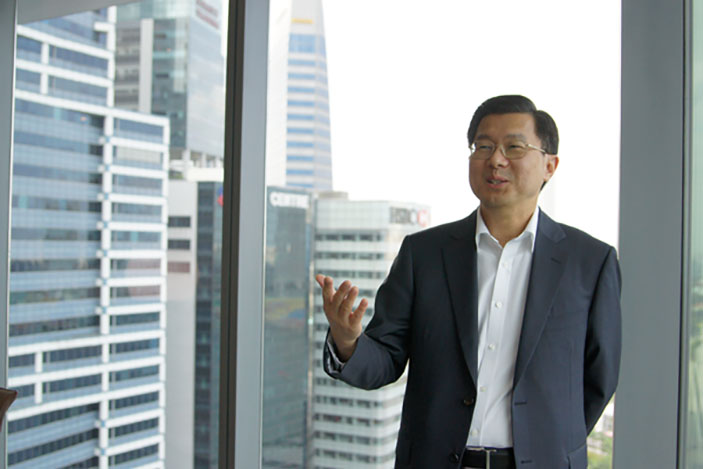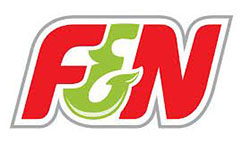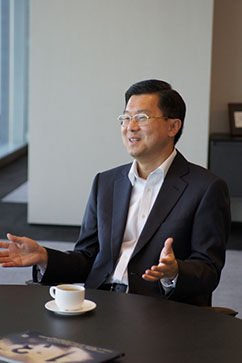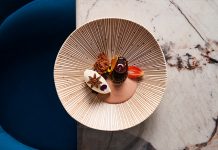
AFTER a gruelling two-month duel with his Thai adversary, Dr Stephen Riady walked away from the contest for F&N without the trophy, but richer for the experience.
He had the audacity to go after a company five times larger than his own, though that didn’t deter Dr Stephen Riady of Singapore-listed property firm Overseas Union Enterprises Ltd (OUE) from keeping his eye on a target that was being pursued by one of Thailand’s richest men. Thai Beverage’s billionaire owner Charoen Sirivadhanabhakdi, whose company produces Chang Beer, was after the 130-year-old Singapore-listed Fraser & Neave, a company which had recently seen its shares switching hands as its value was bumped up.
In two months of stalking the prey, the two firms sought to outmanoeuvre and outbid each other in the largest deal this region has seen thus far. Ringside were banks, lawyers and an assemblage of shareholders egging on the combatants, eager to share in the resulting spoils. In the end, with the frenzied mob urging him to throw down the gauntlet, Riady walked away from the short but intense battle. As Thai Beverage cracked open the beer in celebration, Riady’s own reputation as a high-stakes player in the region was firmly established. In an exclusive interview following the tempestuous series of events, Riady sits down for a two-hour chat with STORM and talks about derring-do, strategy, thinking out of the box and much more.
From his expansive office high up in his Marina Bayfront office overlooking Singapore’s newly sculpted skyline, the Executive Chairman of OUE reflects on the race for F&N. Despite losing his grasp on the S$13.75 billion trophy, he has won many admirers and allies along the way. And there are numerous opportunities that have opened up as a result of being bold and taking a risk, qualities he feels are lacking in Singapore business. Where were the Singapore big boys when it came to saving a Singapore icon, he wonders?
This is the first instalment of this exclusive interview with STORM.
STORM: Since moving to Singapore a decade ago, what sort of lessons have you learnt about doing business here?
STEPHEN RIADY: Singapore is a very orderly society, very different compared to many other countries in the region. There are rules, laws and processes. Some people say too many. Some people may say it’s not as dynamic as Hong Kong. I lived in Hong Kong 15 years before moving to Singapore, and I’m very comfortable here. That’s one of the reasons for moving. People can trust the system.
Hong Kong businessmen are more creative and they are risk takers. I’m more of a risk taker. With F&N for example, nobody here dared to touch it. Where were the big guys? This is a Singapore icon, a 130-year-old company with excellent assets, and in three sectors it is number two — residential, shopping malls, and serviced apartment under Frasers. I felt I should try for it.
My most difficult task was to get the staff and people surrounding me to agree to it. They asked, ‘How can you take on a company five times bigger than us?’ I just asked, ‘Do you want to do it?’.
The attitude should be I want it, or I’m willing to try. Of course there are a lot of limitations, so you talk to bankers and advisers for ideas to plan your strategy.
I didn’t know the people at Kirin before this, but I spoke with them. I talked to many banks. I spoke with investors. I spoke with US hedge fund Farallon Capital Management. They were all connections that were formed. The more you do this, and eventually you will make it.
We proved the market wrong in the end, by making a bid. The market couldn’t believe it. Even our own people didn’t believe it.
You might also want to read:
Begone 2016! A Year Of Opportunity
 STORM: What piqued your interest in F&N?
STORM: What piqued your interest in F&N?
RIADY: I actually tracked this company’s progress more than a year ago. In Asia, most companies are controlled by families. It’s not easy to buy a company without the family’s consent. Particularly blue chip companies like F&N. But F&N is a rare company. It’s like an orphan.
There is no anchor shareholder, with OCBC Bank owning 20%, and Temasek owning 15% before selling it to Kirin Holdings in 2010. I approached OCBC way before that asking if they were keen to sell. They said yes, but at that time I was not ready. The biggest asset of the company is not the property arm, which was what I was after. Its biggest asset was Asia-Pacific Brewery (APB).
At that time, my thinking was I would acquire it on condition that I could sell APB so it would reduce my burden, since it was not a business I was in. With three-quarters of F&N’s assets being non-property in nature, it deterred me from going further.
Until I saw Thai Beverage acquire OCBC’s 22% stake. Then F&N sold APB to Heineken for USD4.1 billion. I thought that this is the right time to go in and try. I started to talk to the banks.
Initially, I offered to buy the Frasers serviced apartments globally, but the board of F&N asked me to try for the whole company. I spoke with the chairman of the board of F&N, and since the price was low, I thought I figured I would go for it.
I came back and spoke to my board, and nobody took me seriously.
I spoke with one of the banks who said Kirin would be happy to talk with me. So the people form Tokyo flew down and I thought I have nothing to lose having lunch with them. And in that one lunch we struck a deal. Kirin sells its shares to me, I sell the soft drinks business to them. Kirin gets the soft drinks and I get the property and that’s a perfect match.
For me, it’s a guarantee that the soft drinks business is sold. If we are successful I would have about $9 billion cash and properties. On this basis I was willing to go in.
I told the banks and lawyers about the possible deal, but Singapore is a small place for such a big transaction. Because the market is so small, all the Singapore banks are involved in other deals and unable to spare resources for a $12 billion deal. All the good lawyers are conflicted, being used by F&N and Thai Beverage. Similarly, all the major Singapore banks were conflicted. So I can’t even get money, and more importantly Singapore dollars, because the three local banks are all involved in that transaction and can’t act for me.
So I had no bank and I had no lawyers.
Is that the end of it?
No. Let’s find an American bank. There’s Merrill Lynch, who is our anchor tenant at OUE Bayfront. Why not talk to them? If they don’t have Singapore dollars, that’s fine, they can lend me US dollars. We sort it out later if we are successful. Most important is that we have the financial resources. If we are successful, all the Singapore banks would no longer be conflicted and they can come back into the transaction. So why worry now?

So I said ok, let’s do that. Nobody thought about it because they go by the book and tend to look at what cannot be done.
There have been a lot of challenges, but it is very rewarding when you do something quite meaningful. For my team it was a huge learning experience.
When we decided not to pursue this, we proved the market wrong again. The market was so over-confident we would pay a high price for the shares. The main reason for not bidding was that we had an agreement with Kirin to sell the soft drinks for $2.7 billion, but all of a sudden JPMorgan, the independent financial adviser to F&N, came out with a report stating that our agreement to sell the soft drinks business if we are successful at $2.7 billion was “fair but unreasonable”. I have not heard this phrase before. To me, it is either fair or unfair, reasonable or unreasonable. I asked my bankers if they’d seen a report like this anywhere in the world, and they hadn’t.
JPMorgan said if we are successful, we must run an auction. We don’t have to listen to them, as they are not our adviser. But they are advising the minority shareholders that when it comes to voting please bear in mind that it is a ‘fair but unreasonable’ offer.
Also, the timeline to conduct the auction is short, just six months. If the bank provides us with a bridging loan for six months, we must sell the drinks business by then. We had to ask ourselves if we could accomplish that. With so much global uncertainty and tension anything could happen in that time. There could be a war that could affect the business environment. If that happens, and nobody bids, or somebody pays a very low price, we would be caught out.
Since Kirin and OUE were connected parties we were not able to vote on any offer Kirin makes. But we could vote for any unrelated offer. If they are reasonable people, that’s ok. But if they feel we are distressed, they may seize the opportunity to offer a high price and delay the process. And two weeks before my bridging loan expires they could drop the price. With no time left, what would I do? That is a big $2.7 billion risk. It’s not a matter of bidding an additional 20 cents, which is just $300 million more.
But what I learnt, and what I want my people to learn, is you must win over ego, and the ‘face’ issue. You have to learn to be strong at that moment and walk away. All banks and lawyers want us to win, because if we win their fees are much bigger. Friends and people from my church were all saying ‘I pray that you win’. I feel I don’t want to disappoint these people, that I must bid and be a hero. I received so many messages and calls of encouragement from people, and the bank was saying the value is so much higher, that I should bid more. There was a lot of stress and pressure at the end, and the market was anticipating our next bid.
But you must be clear headed and strong. You must be a disciplined investor. I think I was given credit for that, a lot of analyst reports after the event — we were covered by over 20 banks — and many of my shareholders said that it was the right decision because they worried I would over pay. The year before, the price was only $6. Then it went over $9. Imagine if we bid $9.80 or $10.
Even at $9.80 I can still make money. But not having the assurance that I can get rid of the soft drinks business at the right price in six months was key to my decision not to proceed. It was the right decision.
For me, the good thing is to give confidence to investors that I know when to go in, when to try and at the same time, I also know my limit and to be disciplined. Not to be carried by the emotions surrounding me.
I’ve done a lot of deals in the last 20 years, but I’ve never gone through something like this. This was intense.
STORM: Do you feel you want to go through another deal like this, or would you back off?
RIADY: This experience has helped to raise my profile internationally. Immediately after the F&N saga ended, there were some deals offered from US, Europe, London and Singapore.
When I was a university student, the first transaction was a US$10 million deal. But people didn’t trust me. They asked me to prove that I had the funds. The lesson I learnt was that to do business, you need a track record. If you are a university graduate and you’ve never made $10 million, when you go to a bank or investors and say this is my first deal and we can make over $300 million do you think the bank will believe it? No. You need to start small and build up. If, so far, you’ve done a $200 million transaction, and somebody in the market wants to sell something worth $1 billion, I guarantee you your name won’t be on their list of potential buyers.
But once you’ve touched a transaction that is $1 billion, next time there is a deal that is worth $1.5 billion, when they look at the potential buyers, there may be four or five names, and yours will be there. Until you’ve proven that you’ve done deals that are up to the value of a transaction, then you are on their list, on their radar.
This experience has been important for me because this is the largest deal I could have struck now, over $13 billion. I think because of that, my name is on the radar of many more institutions.
STORM: So, losing F&N was a win after all?
RIADY: Yes you can look at it from a positive way. I’ve nothing to lose. I’ve created additional $1 billion value for all F&N shareholders. We got paid $50 million by F&N to cover all my costs. So I think it’s worth it.
This article was originally published in STORM in February 2013.
Main Image: QW, STORM



















